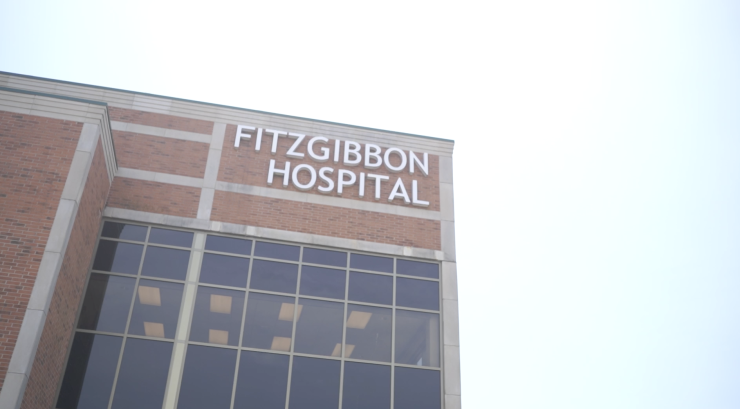When innocent roughhousing between his two sons left the oldest with three missing front teeth in the fall of 2022, Richard DeFord first made sure that his injured child was safe and healthy. His next move? Start worrying about the dentist bill.
DeFord is no novice to the medical system. The manager of marketing and spiritual care at Missouri-based Fitzgibbon Hospital has spent more than a decade working within the
"We do okay [financially]," says DeFord. "But we are certainly not in a situation where we could ever afford to buy three implants at once."
Read more:
The out-of-pocket costs for the implants was $1,800. That's no small amount of money, and DeFord isn't alone in getting stressed by that kind of bill: More than half of Americans don't have the money to cover an unexpected $1,000 bill, according to a 2023 Bankrate survey. But DeFord had a solution in his back pocket.

"The only way we were able to [cover costs] without taking out a loan from the bank was to use Paytient," he says. "And that's what we did."
Paytient is a fintech platform and employee benefit provided by Fitzgibbon Hospital as part of its health benefits plan, and provides employees with a dedicated credit card to use on any healthcare or even veterinary expense, planned or not. Unlike with a regular credit card, Paytient sets its members up with an interest-free payment plan of up to 12 months. The determined payment amount then comes directly out of an
Read more:
For DeFord, it was a lifeline at a time when budgets are already being crunched. He used some of his Health Savings Account funds to cover a portion of the cost, and charged a balance of $1,000 on his Paytient card. In the year-plus since the accident, with his son's needs taken care of, DeFord has been able to go back to using Paytient as he did before: covering planned medical expenses, prescription costs and the occasional vet bill.
"Everything from health insurance to groceries and gas is increasing in price, so that makes healthcare costs all the more problematic — especially when you have an emergency situation," says DeFord. "To be able to drop that on the card and not pay interest, set up payments on the app on your phone — it's just been very convenient."
Angy Littrell, president and CEO of Fitzgibbon Hospital, was keenly aware of the value her hundreds of employees place on being able to
"It's important that our folks feel like they have an avenue by which they can finance [medical care], because people will put it off," she says. "Putting it off just compounds the issue down the road, and they're more likely to have a much more significant health event. [Paytient] eases this pain point for our employees, and there is no financial burden on us."
Read more:
Littrell emphasizes that in a hospital setting in particular, employees must be able to come to work fully engaged.
"When someone is having struggles from a financial and health standpoint, they bring it to work," she says. "We as an employer can be compassionate and thoughtful about that, and find ways to relieve the strain. Employees' attendance is better, their mental, emotional and physical well-being is better, and that leads to retention, a great employee experience and a great culture. If we can alleviate the stress over that one medical situation, maybe they smile at the next patient they see — it changes how you show up to work."






